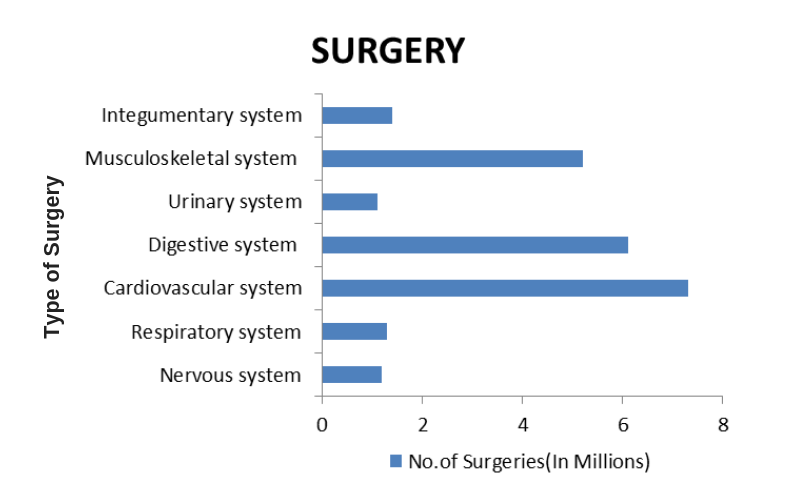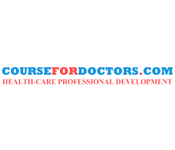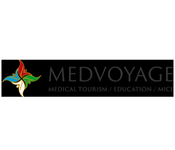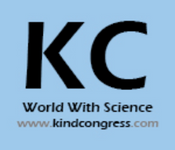Theme: A Global Discussion on Surgery Research & Techniques
SURGEONS CONF 2022
Join us for the SURGEONS CONF 2022
A Global Discussion on Surgery Research & Techniques
ME Conferences takes a lot of privilege to welcome everyone across the globe to explore their knowledge about their respective surgical fields at 8th International Conference on Surgeons.
The SURGEONS CONF 2022 attempts to bring prestigious researchers, Physicians, Surgeons, Professors, Instrumentalists, Medical and Industrial professionals, under a single solitary rooftop, in this way giving every one of them a stage to share information and the different scientific headways of the current circumstances, in the field of Surgery and aides in empowering future research exercises. It is the one among the best platform to discuss the innovative researches and developments in the field of surgery and the surgical instrumentation.
8th International Conference on Surgeons is the one- day meeting with Interactive Sessions and Sub-sessions underscored on the development and new patterns on surgery, keynote addresses from Senior Scientists and industry specialists, panel discussions, poster presentations and Young Researcher Forum. SURGEONS CONF 2022 will be glad to take the privilege to invite everyone across the globe to share their expertise, research, and latest discovery in the field of Surgery and the surgical instrumentations. It is a global event that provides you with the best platform where you can exchange your knowledge in the particular field.
Why to Attend?
The SURGEONS CONF 2022 welcomes individuals over the globe concentrated on learning out about surgical application and its specialities. This is the absolute best chance to achieve great number of participants. Sharing the information, data and B2B meetings with industrialists and potential customers to make a sprinkle with imaginative items live and mark acknowledgment at this occasion. Widely acclaimed speakers, the latest systems, and the most recent updates in Surgery are the best signs of this meeting. It also provides the way for huge range of surgeons to interact with one another.
SURGEONS CONF 2022 provide surgeons, researchers, practitioners and educators a platform where they can put their education, training, and skills to valuable use and can discuss the most recent innovations, and practical challenges, encountered and solutions adopted in the field of Surgery and the surgical instrumentation.
Targeted Audience:
- Doctors
- Surgeons
- Anaesthesiologists
- Medical professionals
- Fellowship holders
- Medical students
- Nurses
- Surgical Tool Technicians
- Pharmaceutical industries.
- Ophthalmologists
- Neurologists
- Nephrologists
- Gastroenterologists
- Surgical oncologists
- Dentist
- Cardiologist
- Orthopaedic surgeons
- Trauma care surgeons
- Podiatrist
- Gynecologists
- Neurosurgeons and others
Track 1: General Surgery
General surgery is an interdisciplinary concept that requires knowledge of and responsibility for the patients with a wide range of diseases and is not like dealing with a particular anatomical area of the body, as does the modern surgery does. General surgeons are of particular importance in rural settings and in acute emergency situations. General surgeons have a wide range of knowledge extending to disciplines including anatomy, physiology, epidemiology, immunology, and pathology, clinical care, pain management, shock and resuscitation. Acute abdominal pain, due to variety of reasons like appendicitis, hernias and gallstones, is the most common emergency situation that requires surgical proceedings.
- Hemorrhoids
- Breast surgery
- Colonoscopy
- Stomach surgery
Track 2: Cardiovascular Surgery
Cardiovascular surgeons perform Heart surgery by the implantation of ventricular assist devices (VADs) that support the failing heart by helping to pump blood. Cardiovascular surgery is a medical speciality which includes different types of operations, like heart defect repair, coronary artery bypass, aneurysm repair, heart transplantation and also implants medical devices that help control the heartbeat. Traditional heart surgery, known as open-heart surgery, is done by opening the chest wall to operate on the heart, whereas newer procedures have developed like off-pump.
- Heart valve surgery
- Thrombolytic therapy
- Artificial pacemaker surgery
- Defibrillation
Track 3: Neurosurgery
Neurosurgery, colloquially referred to as "brain surgery" does not stop with surgery of brain alone. It expands to deal with prevention, diagnosis, evaluation, treatment of brain, spinal cord and spinal column, and peripheral nerves within all parts of the body. A neurosurgeon assists patients suffering from back and neck pain as well. Neural disorders range from tremor, dystonia to Alzheimer’s and Parkinson’s disease and thus a neurosurgeon requires extensive knowledge of the complex organs, operative and non-operative management (critical care and rehabilitation) and has to perform the procedure with utmost concentration.
- Endoscopic surgery
- Microsurgery
- Radiosurgery
- Endovascular surgery
Track 4: Minimally Invasive Surgery
Minimally invasive surgery allows surgeons to reduce the number of cuts and does not have any invasive procedure as open surgery does. The two types of minimally invasive surgery include Laparoscopy and Robotic surgery. Laparoscopy, popularly known as “keyhole surgery”, is the first type of minimally invasive procedure developed. The procedure involves just introducing a camera and a catheter into the patient’s body and thus the surgeon performs the surgery. In Robotic surgery, doctors have greater control and vision (high-definition 3-D image on the console) and thus can operate with precision, flexibility. Some of the remarkable benefits of this procedure includes small incision, less pain, low risk of infection, short hospital stay, quick recovery time, less scarring and reduced blood loss. Some of the conditions that can be treated by this procedure include kidney stones, kidney cysts, atrial septal defect, hernias, severe gastroesophageal reflux disease (GERD) and many more.
- Cardiac Catheterization
- Coronary Stenting
Track 5: Bariatric Surgery
Obesity, which has become common due to modern lifestyle, has become one of the significant reasons for diabetes, hypertension and mortality. So people began switching on to options like weight-loss devices, which has several side effects. Now days, Bariatric surgery, also known as “weight loss surgery”, is performed on people who have obesity (BMI more than 40). The surgery is found to show significant loss of weight, recovery from comorbidities like arthritis, high Blood Pressure, high Cholesterol, diabetes, and mortality. The surgery is performed using minimally invasive techniques (laparoscopic surgery). This surgery restricts the amount of food consumed, increases energy expenditure and produces changes in gut hormones reducing appetite and enhances satiety. Bariatric surgeons may perform any of the three procedures: laparoscopic adjustable gastric band, gastric sleeve surgery or gastric bypass.
- Roux-en-Y gastric bypass
- Adjustable gastric banding
- Sleeve gastrectomy
Track 6: Ocular Surgery
The overall health of the eyes is critical to lead an active life. Eyes are fragile organ that requires extreme care before, during, and after a surgical procedure. Hence, the ophthalmologists work extends from lens prescription, standard medical treatment to the delicate and precise surgical manipulations of the eyes. Ophthalmic surgery also known as “Ocular surgery” is used to treat eye disorders like cataract, macular degeneration, strabismus and many more. Now days, advanced procedures like Laser treatment is used to treat non-refractive conditions or to reshape the surface of the eye.
Track 7: Paediatric Surgery
Paediatric surgery is performed starting from infants to young adults. Sometimes children are born with congenital malformations, abdominal wall defects, chest wall deformities, tumours. Often complex surgeries are performed on children with these disabilities, to improve their standard of living. Separation of conjoined twins also comes under this branch of surgery. Subspecialties of paediatric surgery include neonatal surgery, paediatric urology and paediatric oncology. General Paediatric surgery includes management of common problems like hernias, circumcision or undescended testis. Emergency procedures like appendectomy, correction for the narrowing of the opening between the stomach and the intestine is also performed by paediatric surgeons.
- Annular Pancreas
- Biliary Atresia
- Breast Problems
Track 8: Plastic Surgery
Plastic surgery is claimed to be performed for “The Correction of Featural Imperfection”. It helps either in the restoration, or in the reconstruction of the human body. In the reconstructive surgery, procedures like craniofacial surgery, hand surgery, microsurgery, and the treatment of burns are done, to improve function. In the other is cosmetic or aesthetic surgery, is done to improve the appearance, to approximate normal appearance. The most common surgical procedures include breast reconstruction, cleft lip and palate surgery, contracture surgery for burn survivors, and creating a new outer ear when one is congenitally absent.
- Nasal surgery
- Nose reshaping
- Hair replacement surgery
- Brow/forehead lift
Track 9: Trauma and Orthopaedic Surgery
The spectrum of cases treated under trauma & orthopaedics includes diagnosis and treatment of a wide range of conditions affecting the musculoskeletal system that includes the bones and soft tissues. Trauma can be from low energy fractures (elderly patients) to multiple injuries, as those caused by a road accident. The T&O is divided into several categories like joint reconstruction, orthopaedic oncology, paediatric surgery, spinal surgery, sports injury surgery, complex trauma surgery and acute management of fractures. The reconstructive procedures are commonly performed on conditions like non unions, malunions, and osteomyelitis.
- ACL Reconstruction Surgery
- Ankle Repair
- Ligaments
- Tendons
Track 10: Otolaryngology Surgery
The otolaryngologists are commonly referred to as to as “ENT physicians”. They deal with the disorders and congenital defects of the ears, nose, sinuses, larynx (voice box), mouth, and throat, and even the structures of the neck and face. One of the most unique domains of otolaryngologists is the treatment of ear disorders. ENT physicians are trained to manage and treat ear infections, balance disorders, tinnitus, cranial nerve disorder, balance disorders, allergies, sinusitis, polyps, and nasal obstruction due to a deviated septum. They can also correct the appearance of the nose as is the case of rhinoplasty surgery.
Track 11: Urology Surgery
Urology surgeons or urologists deal with the problems related to genitourinary surgery, urinary-tract system and the male reproductive organs (including kidney, adrenal gland, ureter, bladder, prostate, lymph nodes). The common disorders that are observed are urinary-tract infections and benign prostatic hyperplasia, bladder or prostate cancer, kidney stones and some congenital abnormalities. Usually most of the urological procedures require large incisions with lengthy hospitalization and recovery. But the modern procedures like the ones including minimally invasive surgery and the robotic-assisted laparoscopic radical prostatectomy or Da Vinci radical prostatectomy, have reported to provide better visualization and better control to the surgeons.
- Inflammatory diseases
- Dysfunction
Track 12: Transplant Surgery
Transplantation surgery is one of the most challenging areas of modern medicine, wherein an organ is removed from one body and placed in a recipient’s body, to replace a damaged or missing organ. Several problems like end-stage renal disease, heart failure, congenital cardiac structural defects, cystic fibrosis and emphysema cannot be treated completely without any surgery or medication. Hence, with the advances in surgical techniques and drugs to prevent infection and rejection, organ transplantation has now been recognized as the most effective treatment for many non-curable diseases. Some of the organs that can be transplanted include kidneys, livers, hearts, lungs, pancreas, small intestine. Recently, faces, tracheal (windpipe) tissue, and penises are also found to be transplantable. There are distinct parameters for the eligibility for transplantation of organs and also the organ donors may be living, dead or brain dead.
- Cornea transplant
- Pancreas transplant
- Liver transplant
- Kidney transplant
Track 13: Acute Care
This area focuses on the efforts to provide a more consistent and efficient care for patients requiring emergent surgical procedure in the near future. The most commonly observed conditions are perforations of the gastrointestinal tract, skin structure infections, acute appendicitis, acute cholecystitis and infections of the liver and bile ducts, and bowel obstructions. This is a multispecialty area comprising of surgeons treating burns, trauma surgery, and emergency general surgery and provide supportive care in the intensive care unit. The scope of service encompasses trauma, surgical critical care, emergency general surgery, burn critical care, surgical nutrition support, and surgical infectious diseases. Acute Care Service takes care of patients with severe illness caused due to infections, pain due to complex surgical procedures, and for those who had organ transplants.
- Coronary care
- Cardiology
Track 14: Obstetrics and Gynaecological Surgery
These surgeons in this field have special knowledge, skills and professional capability to treat disorders affecting the female reproductive organs- vagina, the uterus, the ovaries, and the fallopian tubes. Some of the common conditions that adversely affect women health are ovarian cysts, vaginitis, menorrhagia, and menopause and mood disorders. Obstetrics deals with pregnancy, childbirth, and the postpartum period, while Gynaecology deals with the general health care for women and treating conditions like maternal-fetal medicine, reproductive endocrinology and infertility.
- Cervical Cryosurgery
- Hysteroscopy
Track 15: Application of Surgery
The important part of the surgical strategies is to utilize the operative manual or instrumental strategies over the casualties to treat the conditions such as damage or diseases and in rare cases to improve the real conditions of the patients. The complete surgical methods can be clarified in three words they include preoperative care, surgical method, and the postoperative care. The group of surgery incorporates the prominent specialist, surgical partner, anesthesiologist, circulating nurse, and the scrub nurse.
Track 16: Oral and Maxillofacial Surgeon
Oral and maxi oral surgeons are the specialists are involved treating the problems related to hard and soft tissues of face, mouth, and jaws. Oral and Maxillofacial Surgeons are masters within the diagnosis and treatment of a wide extend of disorders influencing the facial complex and skeleton, including the jaws and oral cavity. Contemporary training in both medication and dentistry empowers oral & maxillofacial specialists to treat conditions requiring expertise in both areas. These incorporate a range of common oral surgical issues, jaw and congenital facial disproportion, facial injury, oral cancer, salivary gland infection, temporomandibular joint disorders, and different generous pathologies. Oral and maxillofacial specialists are unique among dental pros in a number of ways.
Track 17: Ophthalmology Surgeon
Ophthalmology surgeons or ophthalmologists are the physicians are the experts of both medicine and surgery which ranges from lens prescription and standard medical treatment to the most delicate, precise surgical manipulations. These are the practitioners who are trained for the treatment of the entire eye, visual problems and provide solutions for the medical disorders of eyes including surgeries. A prospective ophthalmologist ought to keep in mind that a typical ophthalmic practice includes the treatment of patients with vision-threatening infections. These patients frequently accept (accurately or erroneously) that they are going blind. Managing with the prospect of vision lessening or loss presents a special challenge that can be exceedingly stressful and frustrating for both doctor and patient.
Track 18: Robotic Surgery
Robotic surgery, or robot-assisted surgery, permits specialists to perform numerous sorts of complex procedures with more precision, adaptability and control than is possible with routine strategies. Robotic surgery is usually related with negligibly invasive surgery — methods performed through little cuts. It is additionally sometimes utilized in certain traditional open surgical procedures. Robotic surgery could be a sort of negligibly invasive surgery. “Minimally invasive” implies that rather than working on patients through large cuts, we utilize miniaturized surgical rebellious that fit through an arrangement of quarter-inch incisions.
Track 19: Orthopaedic Surgery
Orthopedic surgery or orthopedics, too spelled orthopaedics, is the department of surgery concerned with conditions including the musculoskeletal system. Orthopedic specialists utilize both surgical and nonsurgical means to treat musculoskeletal injury, spine diseases, sports wounds, degenerative maladies, infections, tumors, and congenital disorders. Orthopedic specialists work closely with other wellbeing care suppliers and regularly serve as consultants to other doctors. Orthopedic specialists frequently are involved in education (e.g., medical school professors) or research. They may practice in an orthopedic or multi-specialty group, or in a solo practice.
Track 20: Vascular Surgery
Vascular surgery could be a surgical sub specialty within which diseases of the system, or arteries, veins and bodily fluid circulation, are managed by medical medical aid, minimally-invasive surgery procedures, and surgical reconstruction. The specialty evolved from general and viscus surgery yet as minimally invasive techniques pioneered by interventional radiology. The vascular surgeon is trained within the designation and management of diseases touching all elements of the system except those of the serous membrane and intracranial region. Vascular surgeons are trained in everything: open, difficult surgery and in minimally invasive, endovascular procedures.
Track 21: Colon and Rectal Surgery
Colorectal medical procedure is a field in medication managing protests of the rectum, butt, and colon. The territory is otherwise called proctology, however this period is presently utilized inconsistently inside medication and is regularly utilized to distinguish works on identifying with the rear-end and rectum specifically. Specialists in the Partition of Colon and Rectal Surgery at Mayo Clinic offer the most recent in analysis and treatment of clutters of the colon, rectum and butt. Colon and rectal specialists at Mayo Clinic have finished preparing all in all medical procedure just as cutting edge preparing in the treatment of colon and rectal issues.
Track 22: Growth in Surgery and Anaesthesiology
Due to the quick growth in the field of surgery and anaesthesiology the surgical procedures have nowadays became less painful for the patients and allows them to get back to their usual life faster than the traditional surgery. Anaesthesiology can be well-defined as the procedure to bring up the loss of perception in patients either by means of inhalation or by the mode of injection. Continues reinventions and progresses may be the reason for the development of surgery and anaesthesiology. The recent development in the field of minimally invasive surgeries is also the reason behind them.
In recent years the surgical procedures have been increasing abruptly and the field of surgical instrumentation is also found to grow at the maximum rate. According to the recent survey performed by the National Centre for Health Statistics cardiac surgeries stands at the top and the ear surgeries stand the least. The below graph shows the statistical analysis of different types of procedures performed.
The growth of surgical instrumentation has also become irreplaceable in the last few years, according to the recent survey it is found that electrosurgical device market was valued for 740 million U.S Dollars in 2015 and it is estimated to reach the height of 1.3 billion U.S Dollars in 2024.

Conference Highlights
- General Surgery
- Cardiovascular Surgery
- Neurosurgery
- Minimally Invasive Surgery
- Bariatric Surgery
- Ocular Surgery
- Paediatric Surgery
- Plastic Surgery
- Trauma and Orthopaedic Surgery
- Otolaryngology Surgery
- Urology Surgery
- Transplant Surgery
- Acute Care
- Obstetrics and Gynaecological Surgery
- Application of Surgery
- Oral and Maxillofacial Surgeon
- Ophthalmology Surgeon
- Robotic Surgery
- Orthopaedic Surgery
- Vascular Surgery
- Colon and Rectal Surgery
- Growth in Surgery and Anaesthesiology
To share your views and research, please click here to register for the Conference.
To Collaborate Scientific Professionals around the World
| Conference Date | October 27-28, 2022 | ||
| Sponsors & Exhibitors |
|
||
| Speaker Opportunity Closed | Day 1 | Day 2 | |
| Poster Opportunity Closed | Click Here to View | ||
Useful Links
Special Issues
All accepted abstracts will be published in respective Our International Journals.
- Journal of Surgery and Emergency Medicine
- International Journal of Surgery
- Indian Journal of Surgery
Abstracts will be provided with Digital Object Identifier by









